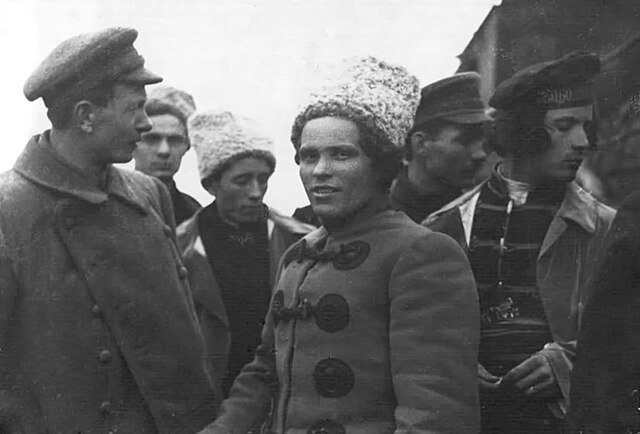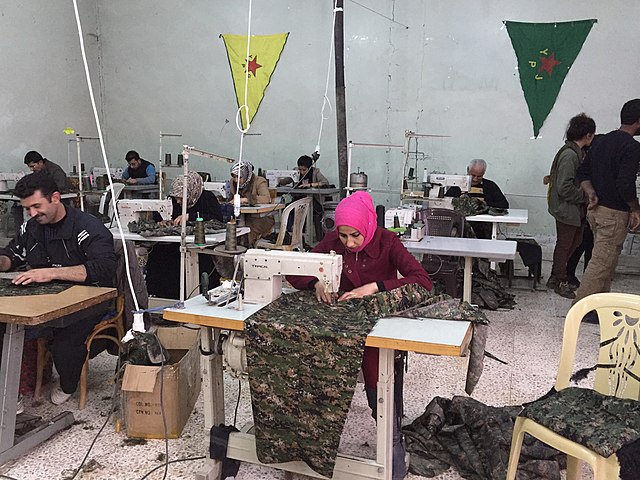Anarchism in Spain has historically gained some support and influence, especially before Francisco Franco's victory in the Spanish Civil War of 1936–1939, when it played an active political role and is considered the end of the golden age of classical anarchism.
Giuseppe Fanelli and the Spanish internationalist núcleo which was to form the Madrid section of the International Workingmen's Association (IWA).
Rafael Farga i Pellicer, early leader of the Catalan anarchist movement and the Spanish Regional Federation of the IWA.
An etching of the 1870 Barcelona Workers' Congress
A CNT–FAI poster from the 1930s
Anarchism is a political philosophy and movement that is against all forms of authority and seeks to abolish the institutions it claims maintain unnecessary coercion and hierarchy, typically including the state and capitalism. Anarchism advocates for the replacement of the state with stateless societies and voluntary free associations. As a historically left-wing movement, this reading of anarchism is placed on the farthest left of the political spectrum, usually described as the libertarian wing of the socialist movement.
Wilhelm Weitling is an example of a writer who added to anarchist theory without using the exact term.
Zeno of Citium (c. 334 – c. 262 BC), whose Republic inspired Peter Kropotkin
Nestor Makhno seen with members of the anarchist Revolutionary Insurgent Army of Ukraine
Rojava's support efforts for workers to form cooperatives is exemplified in this sewing cooperative.








